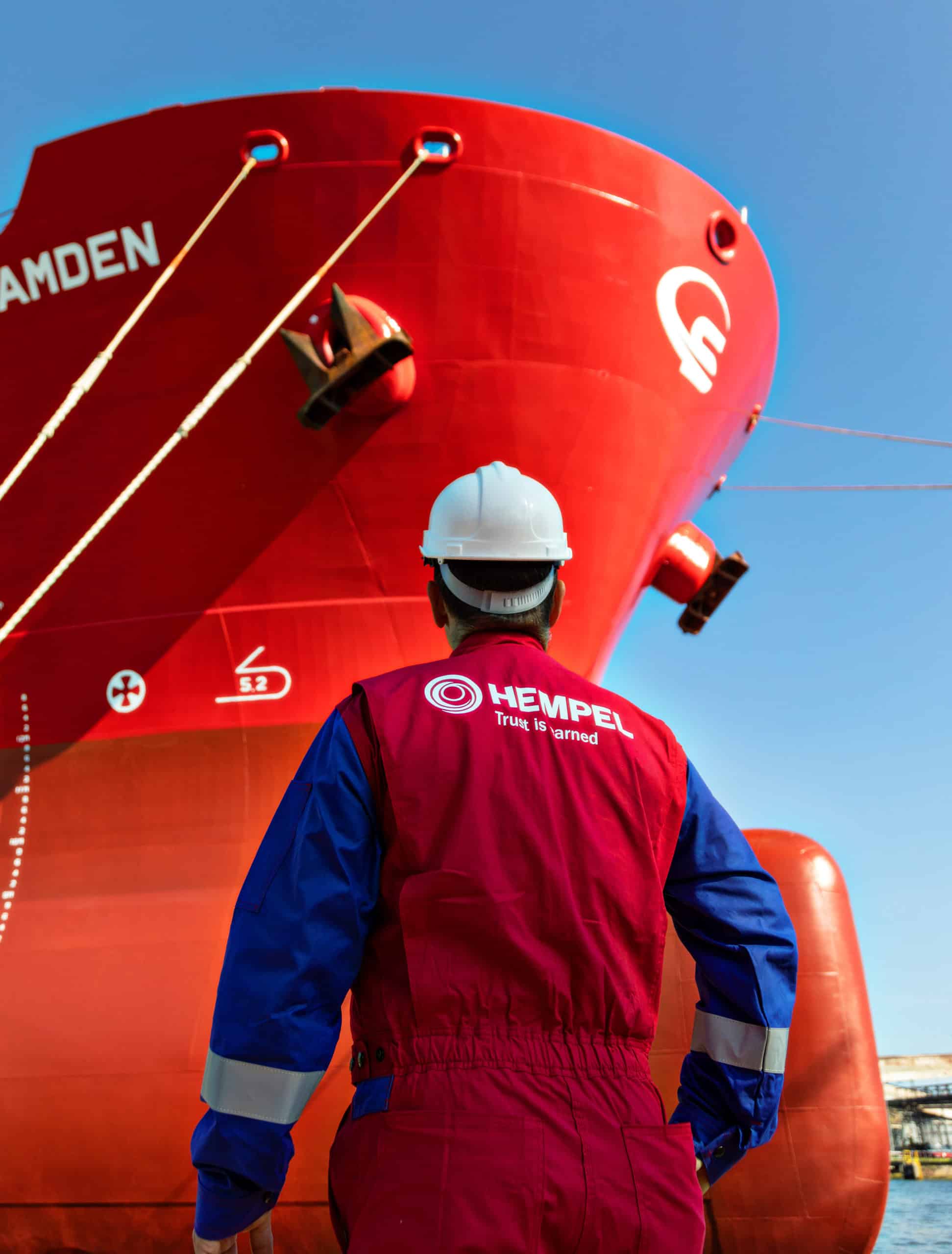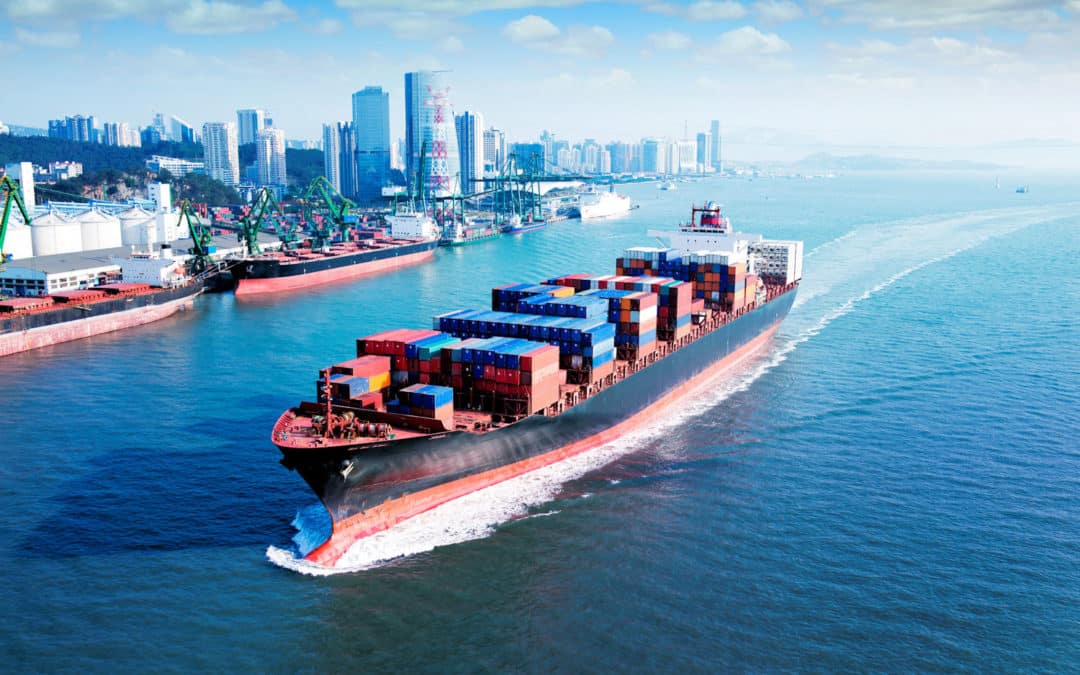In an increasingly unpredictable world, shipping companies need flexible solutions that enable them to take advantage of market opportunities when they arise, says Christian Ottosen, Group VP, Head of Marine Business at Hempel A/S

If 2020 has taught us anything, it’s that nothing can be taken for granted. A year that began with focus on how to approach and mitigate the sulphur cap has been spun on its head, presenting unexpected challenges and unforeseen opportunities for various players in the marine business. The total marine market has a long-term growth horizon of 2-3 per cent annually. This year will be different. The dry dock market seems to be growing, driven by a relatively strong demand for repair and maintenance, as well as scrubber installation. The newbuild market, however, is struggling, with order books at an all-time low and no immediate signs of recovery. Right now, no-one knows what the future will bring. But one thing is certain: companies need flexible business models and solutions that enable them to shift focus as the market demands. Traditionally, coating companies like Hempel have been in the protection business; increasingly, we’re providing flexibility to match our customers’ needs in their changing business environment.
Let’s talk about the sulphur cap
Going into the year, nearly all shipping companies and industry stakeholders were talking about the 2020 sulphur cap and how it would affect shipping. Despite all the upheaval and change thrown up by the COVID-19 pandemic, the sulphur cap is still relevant. The cap requires all vessels to limit their sulphur emissions to 0.5 per cent, down from the previous limit of 3.5 per cent. To address this, some owners have decided to install scrubbers, even going into drydock out of their normal cycle; some have chosen to switch to low sulphur fuel oil; others still have opted to install LNG-fuelled engines. Who will come out as the long-term winner? With the future so uncertain, it’s still too early to know.
At Hempel, we’re neither for, nor against, any of these options. The choice of hull coating is the single biggest contributor to fuel reduction aside from the engine. So, we focus on providing flexible hull coating solutions that reduce fuel bills, sulphur oxides and other emissions regardless of fuel or engine type, such as our leading solutions Hempaguard X7, Hempaguard X8 and Hempaguard MaX. Why? Because the fuel savings delivered by a premium hull coating will not only eliminate the increase in fuel consumption from scrubber operations, but will ‘payback’ the cost of the scrubber within just a few years. If a vessel opts not to install a scrubber and burn low sulphur fuel instead, the savings delivered by the hull coating will in short time offset the cost of the more expensive fuel. Even if a vessel runs on LNG fuel, our hull coatings will significantly reduce operating costs and CO2 emissions. Either way, the hull coating gives operators and owners more flexibility to choose.
COVID-19 and the marine industry
The global COVID-19 pandemic has affected all industries, but it hasn’t affected all industry sectors equally. The shipping industry is no different. Everything ground to a halt at the end of the first quarter. Many marine sectors, including container freight are moving again; others, such as cruise shipping, remain idle. Not all drydocks are open, but those that are have been exceptionally busy in the second half of the year, trying to catch up on delayed orders while adapting to regulations brought in to slow the spread of the virus.
The pandemic has also changed vessel trading behaviour. Overall, we see longer idle periods and slower steaming for vessels across all sectors, driven by the hesitant world economy. In the tanker market, many vessels are being used for floating storage. All these scenarios increase the risk of fouling, presenting coating challenges for vessel owners and operators. After idle periods, many vessels will have to undergo expensive and time-consuming hull cleaning before trading again. Vessels that switch to slow steaming may also see a larger build-up of fouling than originally predicted when the hull coating was specified, meaning higher fuel bills today and more expensive cleaning or repair costs in the future.
Again, flexibility when choosing the original hull coating is key. Owners who chose a high-performance hull coating solution – one that continues to keep fouling at bay despite long idle periods or changes in trading pattern – are in a far better place to keep costs down and quickly take advantage of new market opportunities when they arise.

Navigating the turbulent waters of 2020
Hempel has performed relatively strongly in 2020 so far, despite the challenging market conditions. We’ve gained market share in recent years, driven by our drydock and sea stock solutions. We’re the global leader in documented fuel efficiency, offering solutions that are proven to lower fuel costs and emissions and ensure trading flexibility. Hempaguard X7, for example, is approaching 2,000 applications, which is a testament to its trusted performance. In a volatile market, demand for these flexible solutions is increasing. We can also see an uplift in our newbuilding market share, with large orders from major European owners.
This good performance is down to our focus on delivering services and products that add value for our customers. Not just protecting their vessels, but improving vessel performance. This requires developing close partnerships with customers, driven by mutual goals. SHAPE, our propulsion monitoring service, is an excellent example. SHAPE gives vessel operators accurate in-service data on the propulsion efficiency of their vessel, which enables them to make adjustments to improve fuel efficiency while in service or in dock. Combined with our hull coating solutions, SHAPE helps vessel owners and operators take another step towards greater efficiency, lower costs and better environmental performance.
The drive for greater sustainability
Hempel is fully committed to taking the lead on sustainability within the coatings industry – not just in terms of our own environmental performance, but by continuing to create products, like SHAPE and Hempaguard, that help customers reach and exceed their own environmental targets.
Of course, bigger thinking is required if the IMO is to reach its goal of reducing greenhouse gas emissions from shipping by at least 50 per cent by 2050, which is why we joined the Getting to Zero Coalition. A powerful alliance of more than 120 companies within the maritime, energy, infrastructure and finance sectors, the Getting to Zero Coalition is committed to getting commercially viable deep-sea zero emission vessels into operation by 2030. It’s an ambitious goal, but well within reach and coatings will play in important part in this.
The outlook for 2021
With the COVID-19 pandemic still present and impacting business, no-one can predict the future with any certainty. We expect the global economy to slowly rebuild. Vessels will continue to go into drydock, but restrictions and lockdowns may affect repair times and berth availability. Whatever 2021 brings, Hempel will be there, ready to support our customers with the coatings and services they need to ensure lower operating costs and better operational flexibility. We also fully expect sustainability to continue to be extremely high on the agenda – consumers, governments, regulatory bodies and shipping companies themselves demand it.
If you have enjoyed this article then sign up to get your digital copy of DryDock magazine, and why not follow Drydock magazine on LinkedIn

